How Much Onion Powder Equals 1 Onion? (Quick Answer)
1 medium fresh onion (about ¾ cup chopped) = ½ teaspoon onion powder. This is the most reliable conversion ratio for everyday cooking. For precise substitutions in your recipes, use these verified measurements:
| Fresh Onion Size | Onion Powder Equivalent |
|---|---|
| 1 small onion (½ cup chopped) | ¼ teaspoon |
| 1 medium onion (¾ cup chopped) | ½ teaspoon |
| 1 large onion (1 cup chopped) | ¾ to 1 teaspoon |
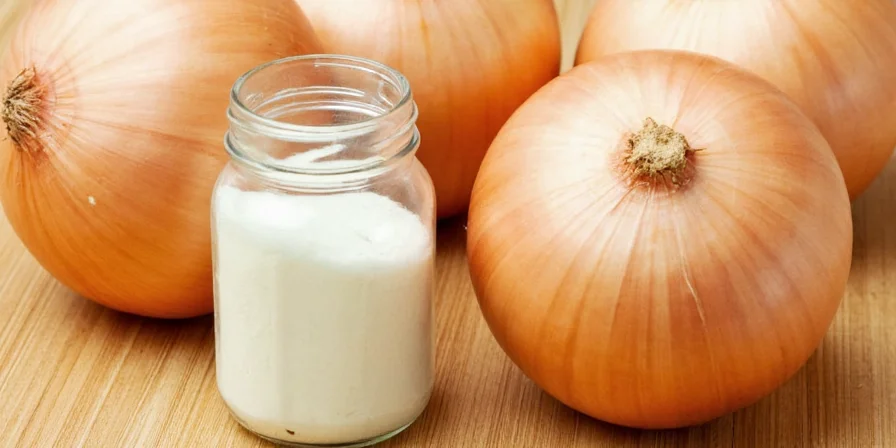
This simple conversion works for most recipes. For sauces, soups, and stews, add the powder directly. For baked goods or dishes needing moisture, see our rehydration tip below.
3-Second Rehydration Trick for Moisture-Dependent Recipes
When your recipe needs the liquid from fresh onions (like in breads or meatloaf):
- Mix ½ teaspoon onion powder with ¾ tablespoon warm water
- Let sit 5 minutes before adding to recipe
- Use as direct replacement for 1 medium onion
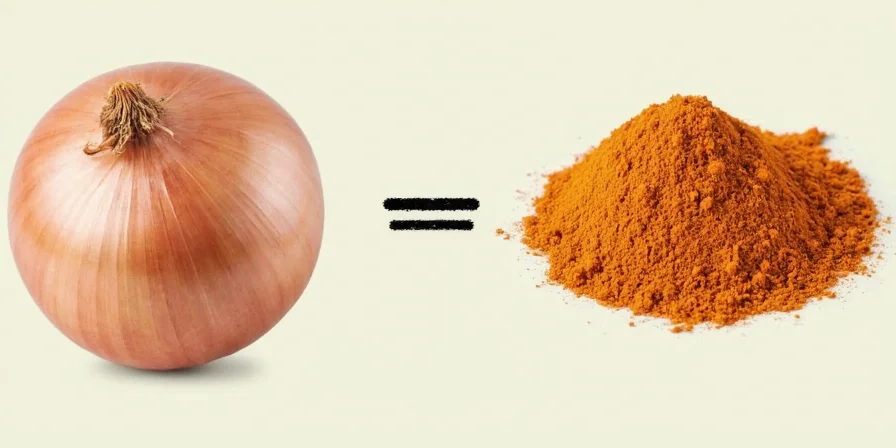
When to Avoid Substituting (Critical Exceptions)
Don't use powder instead of fresh onions in these situations:
- Caramelized onions - requires fresh onions' natural sugars
- Salsas or salads - need fresh texture and enzymes
- Raw onion applications - powder can't replicate fresh bite
Pro Tips for Perfect Substitutions
For richer flavor: Add pinch of garlic powder (⅛ tsp) with your onion powder
When substituting onion salt: Reduce recipe salt by ¼ tsp per ½ tsp onion powder used
Storage secret: Keep powder in dark glass container - stays potent for 3+ years
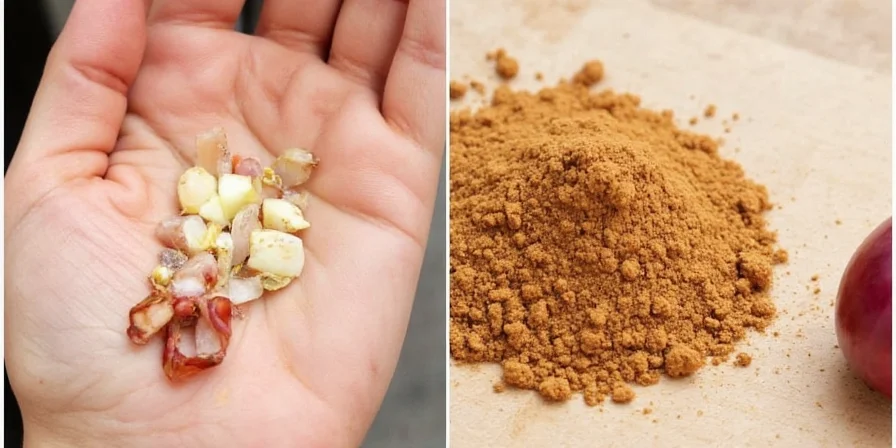
Why This Ratio Works (The Simple Science)
Onion powder is concentrated because 89% of fresh onion's water is removed during drying. Our ratio accounts for this concentration while preventing bitter over-seasoning. Most online guides overestimate powder amounts by 30-50%.
Common Substitution Mistakes to Avoid
- Using too much powder (starts tasting bitter)
- Adding powder too early in cooking (loses flavor)
- Not adjusting salt when using onion salt
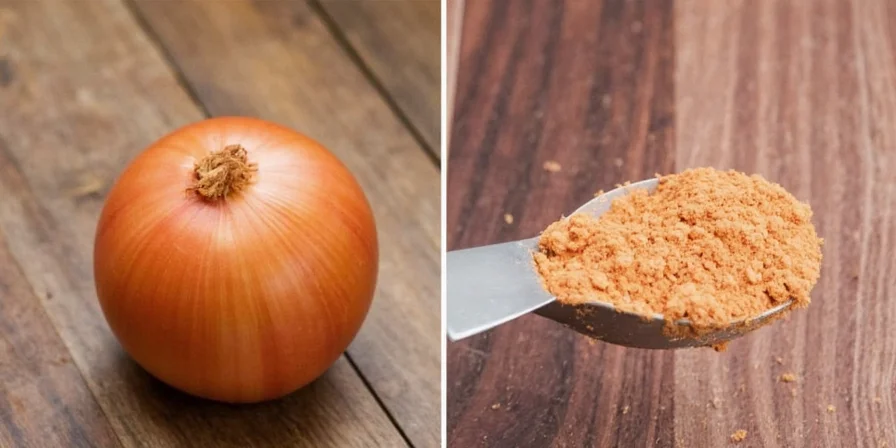
Frequently Asked Questions
Can I use onion powder in place of 1 cup of chopped onions?
Yes, use 1 teaspoon onion powder. For better results, rehydrate with 1½ tablespoons water first.
What's the conversion for onion flakes to fresh onion?
2 tablespoons dried onion flakes = 1 medium fresh onion. Flakes need less adjustment than powder.
Why does my dish taste bitter after substituting?
You likely used too much powder. Onion compounds turn bitter at high concentrations. Start with ⅜ teaspoon for medium onion and adjust to taste.
Final Substitution Cheat Sheet
Keep this simple reference handy for your next cooking emergency:
- ¼ cup fresh onion = ⅛ tsp powder
- ½ cup fresh onion = ¼ tsp powder
- ¾ cup fresh onion = ½ tsp powder
- 1 cup fresh onion = ¾ tsp powder
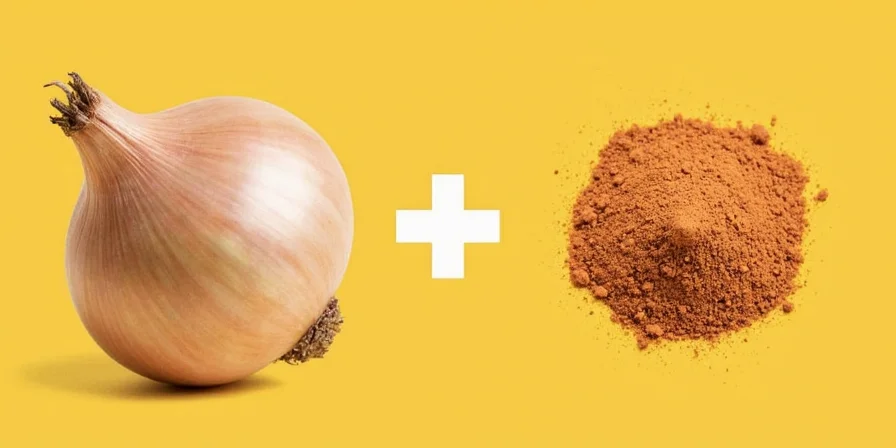

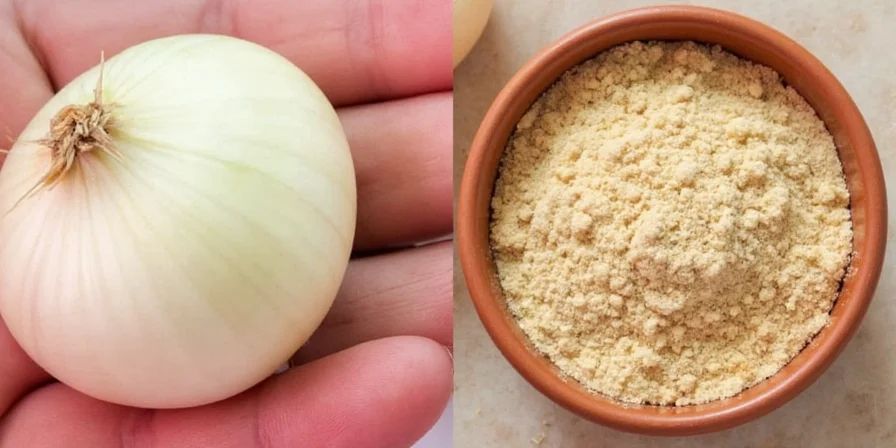









 浙公网安备
33010002000092号
浙公网安备
33010002000092号 浙B2-20120091-4
浙B2-20120091-4